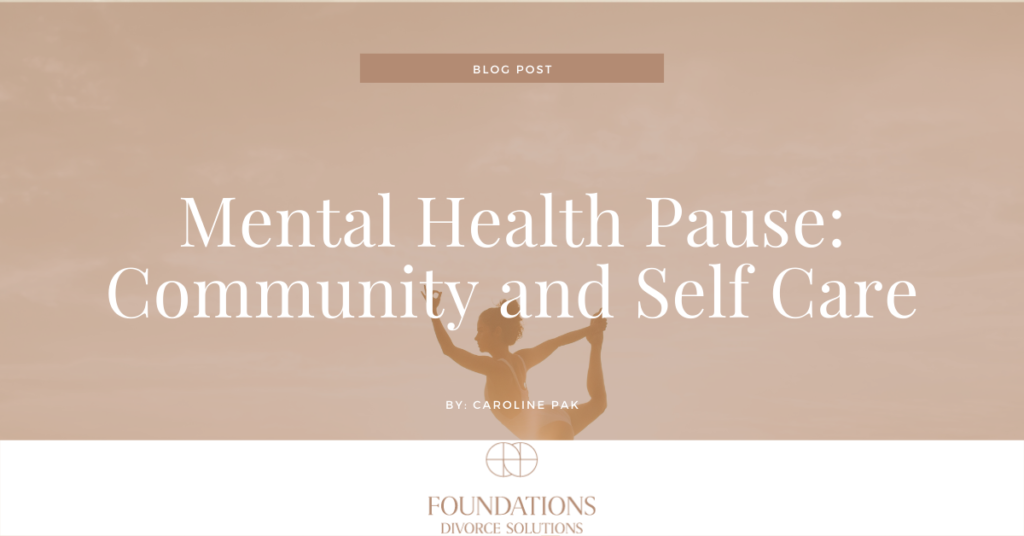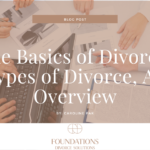This month on Build Your Foundations, we have been diving deep into the topic of trauma as we take our Mental Health Pause. In the previous weeks, we have established that we have all experienced traumas. Most of us have experienced trauma with a lower-case t and some of us have experienced trauma with a Capital T. As I have shared with you my own personal stories over the past weeks, I recognize that I am now exhausted mentally, emotionally, and even physically. Finally, being in a mental and emotional place to be able to recognize and name my Capital T trauma has taken the wind out of me on all fronts.
As I sit with my memories and process what happened to me as a 22-year-old being sexually assaulted by a person in power taking advantage of his position, my body is processing as much as my mind is. The reframing of this memory and bringing the specific incident to the forefront of my thoughts in order to give myself the space to process, cope, and even accept what happened is causing me to feel the different emotions of the stages of grief. For those who are unfamiliar with the 5 stages of grief, they are denial, bargaining, anger, depression, and acceptance. A person who is experiencing grief may not feel these emotions in this order. Sometimes the emotions flow through the different stages and sometimes, some of these emotions are felt at the same time.
When I first started trauma therapy three years ago and discovered the double lower case t traumas, I experienced these emotions, sometimes at the same time, and it took me a long time to finally work through them because I did not have the tools yet to cope and meet my younger self, nor the adult self with kindness, care, empathy, love and without contempt, shame or guilt. So how do community and self-care play into helping you with your grieving, coping, and healing?
COMMUNITY
Having people around you who you trust and feel safe with is essential in the healing process. Whether they are family, a friend, a therapist, or other professional, knowing that you have people who make you feel safe and can meet you with care and compassion is key. Friends and family who have been through trauma therapy and have worked through some of their own traumas is a safe place, especially if they have done the hard work of healing. Let’s be honest, not everyone who has been in therapy has benefited from it because they were either unwilling or unable at that moment to do the work needed to process, cope with the knowledge of the trauma, or grieve, and heal from the past. Having people around you to help encourage you is great but to have people around you who know what the journey towards healing looks like is encouragement on a different level. Not only do you now have a safe space to talk, sit and say nothing or cry without judgment, shame, nor condemnation, but they understand the emotions, and the courage and strength it takes to take this journey towards healing. This does not mean that they know exactly what you are going through as each person’s individual trauma experience is different and the healing process can be similar but still not the same. If they have been through the journey, they have some tools to help you process, to help you lean in, to help you feel all of the feelings that you were either conditioned to ignore and disregard or may feel too intense at the moment.
For me, when I started my journey three years ago, one friend, who is a therapist but not my personal therapist, reminded me that part of the grieving can be for the future I had hoped for and imagined. With this permission, I was able to grieve in a different manner. Even regarding the death of my father, now 25 years later, I spend time to grieve the future we might have had. Some days, the grief is still as fresh as it was when he first passed.
For my divorcing clients, I try my best to grieve with them as they are processing a myriad of emotions and thoughts. I see my clients who grieve what their futures were supposed to look like as we are in mediation and the struggle to cope. I can see the different emotions of grief welling up and I try to keep a safe environment for them to sit and feel and know that it is okay to feel the anger, to be in denial, to finally get to a place of accepting that the divorce is moving forward, whether it was their decision or not to divorce.
If you are grieving, to know that you are not alone as you are flooded with thoughts and emotions and don’t know what to do is paramount. The process towards healing is lonely because only you can do the work that is needed to heal but you do not have to be alone.
SELF CARE
So what does self-care look like? For me, self-care takes several different forms. Here are a few of the ones I incorporate when I am in need of my own mental health pause: journaling, meditation and mindset work, yoga nidra, massage therapy, and the basics like sleep, baths, eating right and even drinking water.
Journaling – I think I have been journaling since I was a little girl. My mom has always kept a journal and maybe this is how I started journaling. Journaling helps me put into words my thoughts and emotions. Sometimes they are in full sentences, sometimes they are just quotes that resonate with me.
Meditation and Mindset Work – Being present with my thoughts and emotions is difficult at times. Meditation helps teach me to be in the present instead of journeying in thought towards the future and disassociating myself from the healing. Yes, disassociating is a coping mechanism but for the long-term healing of trauma, this is not a sustainable tool.
Yoga Nidra – Yoga Nidra is known as sleep yoga. Researchers have found that our limbic system is where our memories and our traumas are stored. And as a self-preservation method, we sometimes do not remember our traumas, as I have shared regarding my lower case t trauma and Capital T trauma. Ways to reframe or rewire our limbic system may be done in our subconscious state. Please do not quote me on this. I am not the expert but I do practice yoga nidra to help with mindset within the subconscious. It’s like repeating affirmations in the mirror but deeper because you are not only working while completely in your conscious thought but getting into the limbic system.
Massage Therapy – This past week, after the realization of my sexual assault and coming to terms with this knowledge, I have had to pause quite often. The day I breathed oxygen into the assault, I was unable to think clearly so I went and got a pedicure. Just to take a moment to pause, not to push myself to keep working, taking a moment to be kind and compassionate to myself as I would any of my clients who are overwhelmed by the emotions of their divorce. And then the next day, I had a previously scheduled massage and I gave myself permission to not worry about work, not stress over that last email or phone call, and with the understanding that when I am able to be kind to myself, I will show up for my clients with more kindness, more compassion and more understanding of where they are at.
And of course, the basics such as sleep, baths, eating right, and drinking enough water. If you haven’t heard of the book The Body Keeps the Score by Bessel Van Der Kolk, MD, the cover alone confirms that the brain, mind, and body are all integrated with the healing of trauma. When we get enough sleep, relax the body, keep the cortisol levels lowered, flush out toxins, eat foods that do not inflame our system and thus triggering other inflammatory responses, and of course drinking enough water, you are allowing your brain and mind to have access to calm as it now no longer needs to put all of the energy into keeping your nervous system stable, focusing on your gut from reacting to the inflammation from eating foods that you do not process well and having the healing water to hydrate and nourish your cells. Taking baths with Epsom salt and or doing infrared saunas to help flush out toxins is another great basic self-care method. If you have any other suggestions for self-care, we would love to hear them!
At Build Your Foundations, self-care is an essential component of our mental health pause. Thank you for joining us on this journey to wellness and wholeness! Join us next week as we dive back into the Basics of Divorce series.




